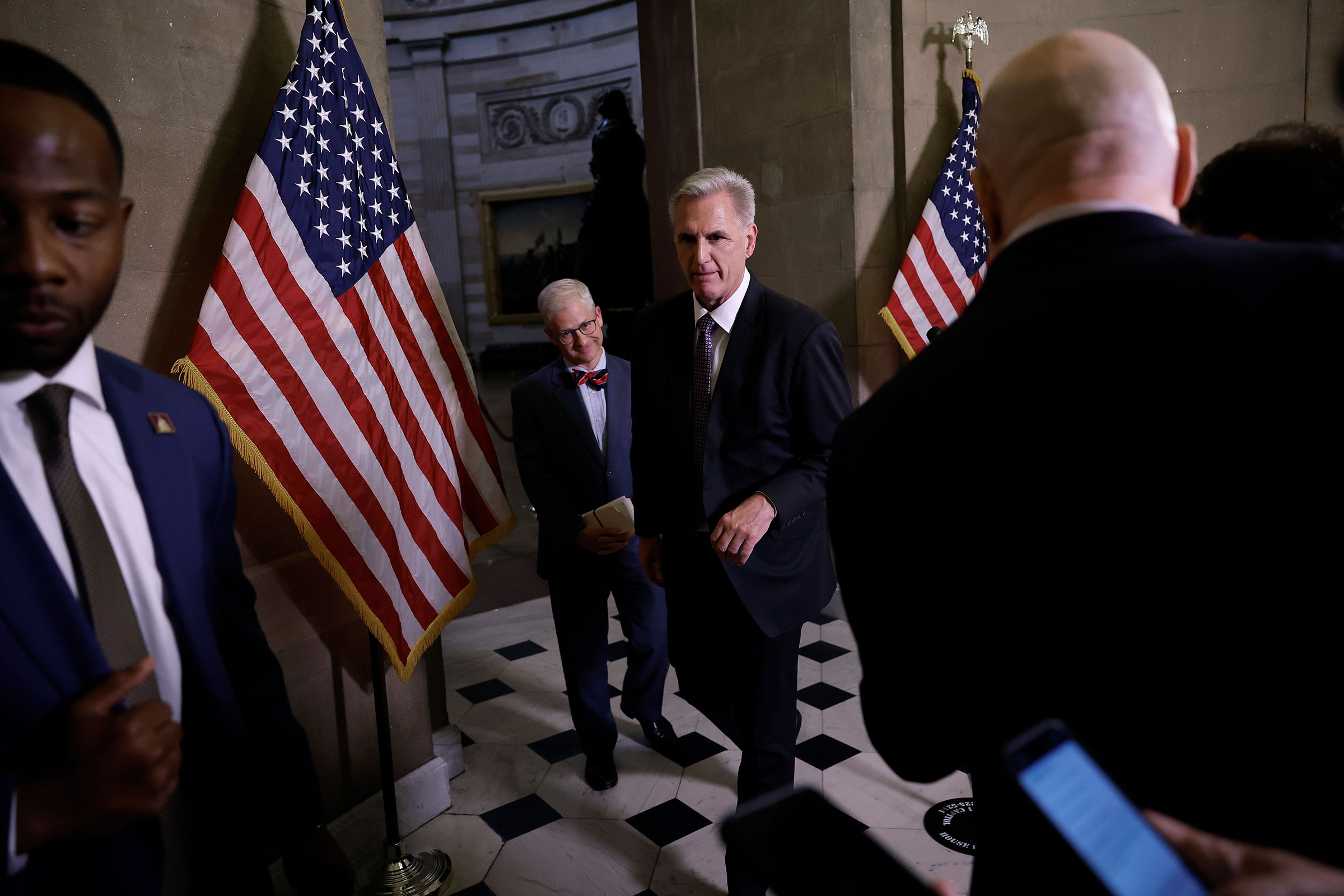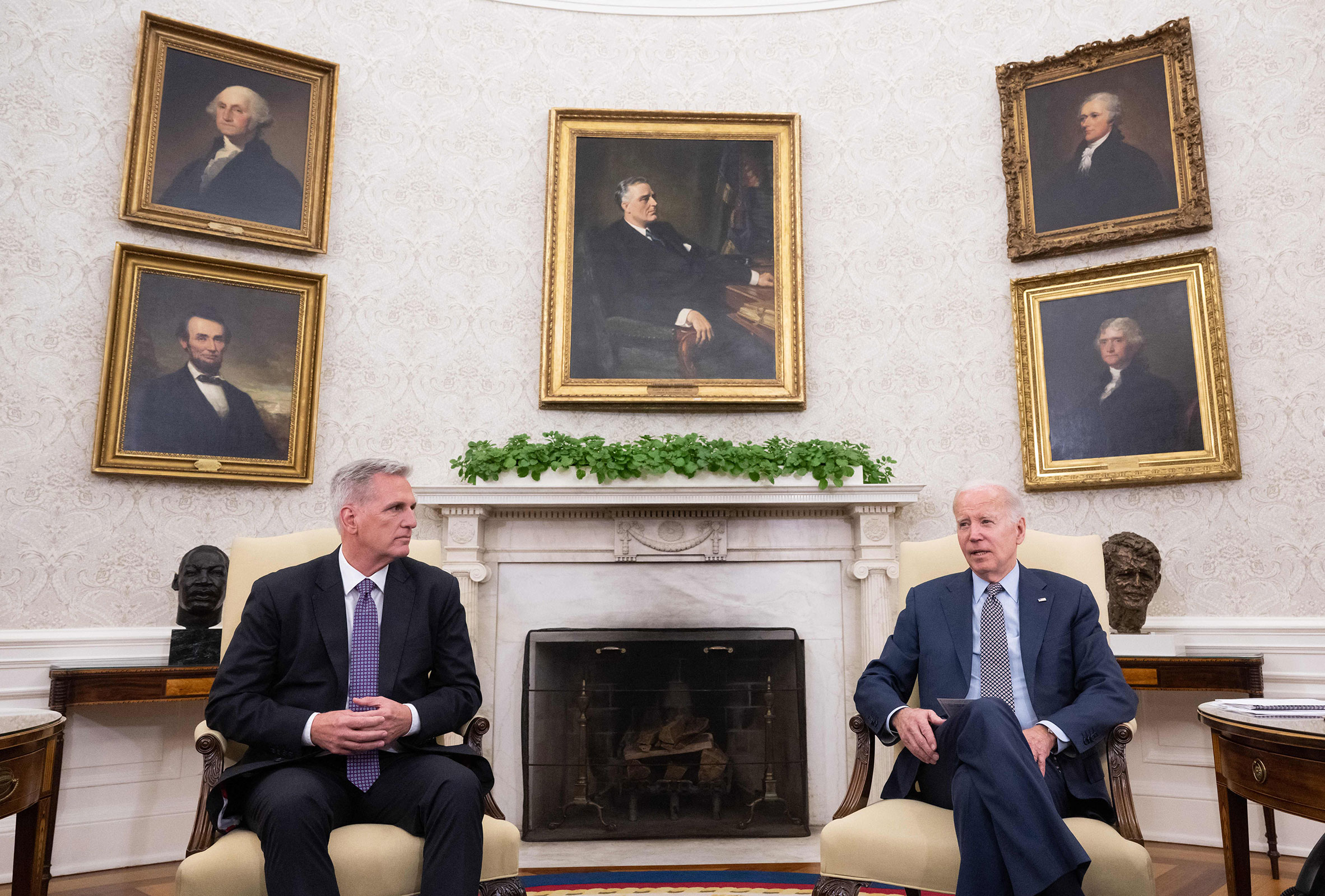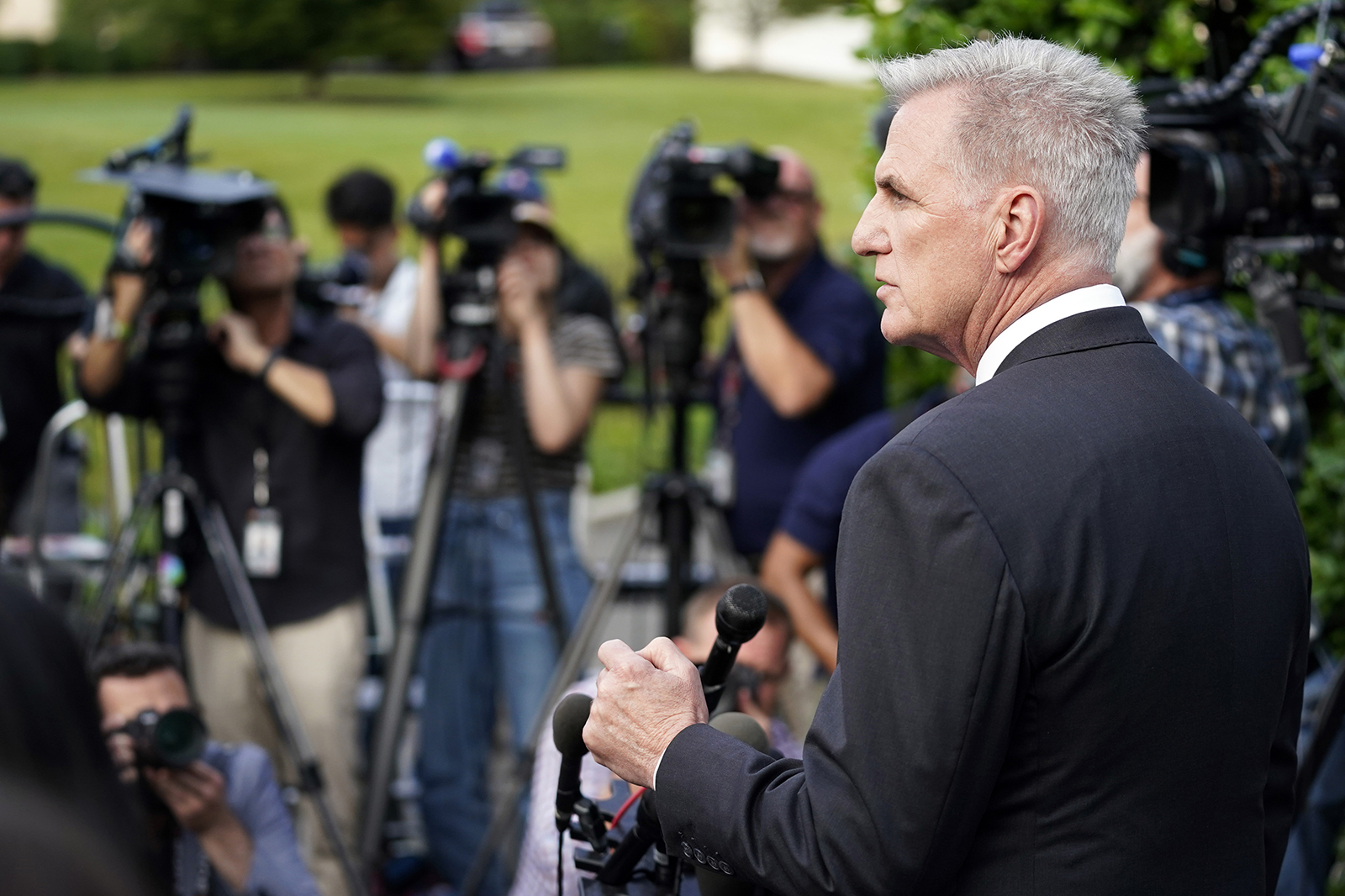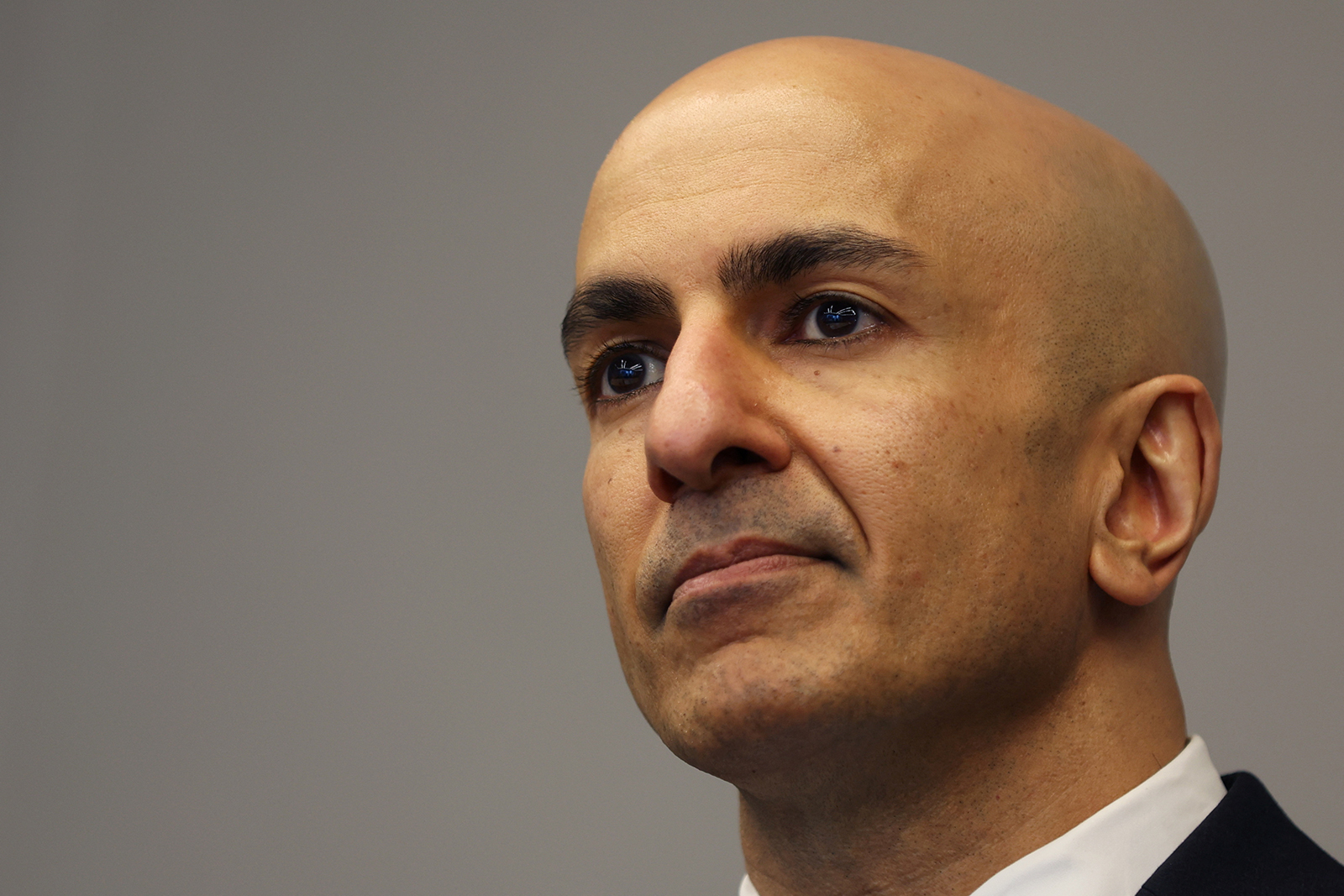
Republican negotiators Patrick McHenry and Garret Graves told reporters that negotiations are not going well at all and the White House needs to realize they have to agree to cut spending or no deal can be reached. It was a sober assessment that was in stark contrast to the rosier takes at the White House yesterday.
"They have a tax crisis and they have a debt crisis," Graves said. "We're not going to be able to make this deal. We're not going to be able to move forward." The Republican claimed that Democrats "try to continue the same trajectory of overspending" and "overtaxing" while burdening the next generation with a "debt that absolutely they cannot afford and certainly didn't create."
McHenry once again said the "lack of urgency is apparent."
"The fundamental issue here is the spending," the Republican from North Carolina said. "The White House at the highest levels needs to understand the urgency of sending their team forward and making sure we understand we need spend less money next year, and everything else, everything else can come into zone."
Asked what changed between the White House meeting yesterday and the staff meeting last night that caused him to sound so pessimistic, McHenry said: "I thought the White House meeting was reasonably productive. What we need is a team that is fully empowered by the White House to get the thing done. The White House still has this expectation that they can spend more money next year."
When asked if Republicans would be willing to accept anything less than returning spending to full-year 2022 levels, McHenry responded: “Everybody's trying to figure out some way to shimmy this thing around. It's fundamental. You're spending less money next year than you're spending this year."
Graves told reporters that as the negotiators deal with spending, they also have to be dealing with the reality of the other issues that have become part of these talks, including clawing back unspent Covid funds, new work requirements and other issues.
"I think that we need to address those issues first because then it gives us an idea of what type of gap we've got to address," the Republican from Louisiana said.








